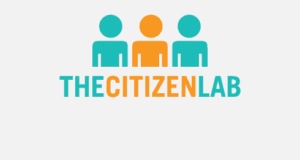News
Testimony provided by Ronald Deibert to the Standing Committee on Procedure and House Affairs (PROC) on April 29, 2020.
In the midst of the COVID-19 crisis, experts have witnessed a rise in the number of disinformation and cyber espionage campaigns emerging from state actors, including Russia and China
New reporting reveals that Toronto police officers deployed Clearview AI for months before Chief Mark Saunders knew of its use. The controversial facial recognition tool identifies individuals by scanning billions of pictures from the open web, including social media sites
This comprehensive Toronto Star profile provides an overview of the Citizen Lab’s work, impact, and history, mapping our journey from a initial Ford Foundation grant to an organization with 18 staff and a dozen research fellows.
Citizen Lab senior researcher John Scott-Railton discusses why WhatsApp is suing NSO Group after discovering their spyware was used to target 1,400 users—100 of whom were members of civil society—and why this is a significant bellwether.
As part of our investigation into the incident, Citizen Lab has identified over 100 cases of abusive targeting of human rights defenders and journalists in at least 20 countries across the globe, ranging from Africa, Asia, Europe, the Middle East, and North America that took place after Novalpina Capital acquired NSO Group and began an ongoing public relations campaign to promote the narrative that the new ownership would curb abuses.
CLSI brings together academics, researchers, activists, and frontline workers and asks them to address some of the most pressing issues at the intersection of digital security and human rights.
Between November 2018 and May 2019, we observed intrusion attempts against individuals from the Private Office of His Holiness the Dalai Lama, the Central Tibetan Administration, the Tibetan Parliament, and Tibetan human rights groups.
This year, Citizen Lab researchers will present on issues ranging from WeChat image filtering to the methodologies used for identifying commercial spyware abuses.
We urge you to seriously engage with the significant issues raised by your Authority’s investment with Novalpina Capital and we look forward to your outstanding reply to our correspondence dated May 24, 2019.

